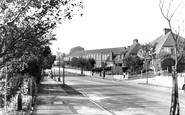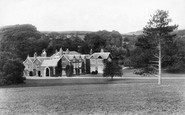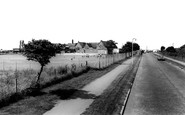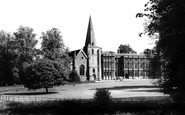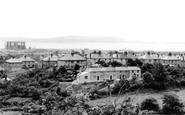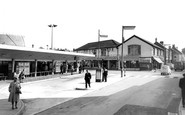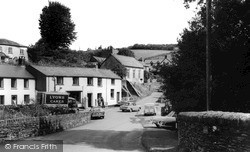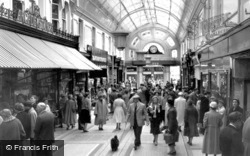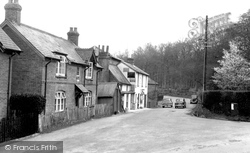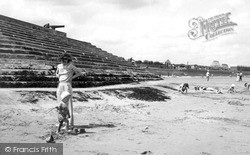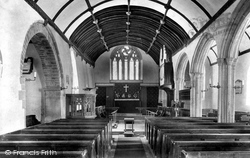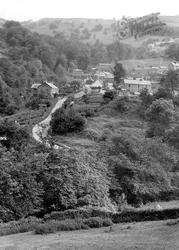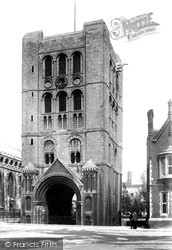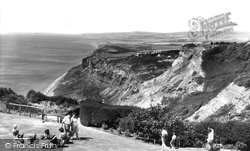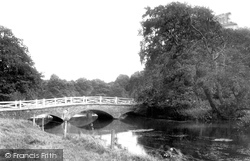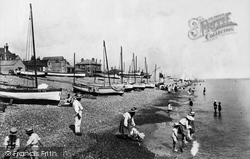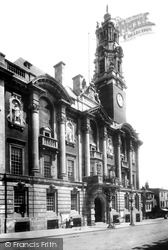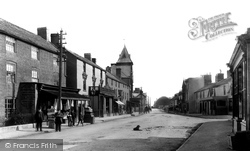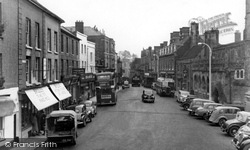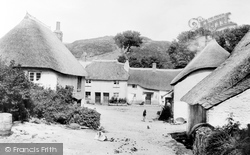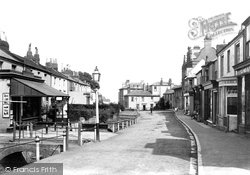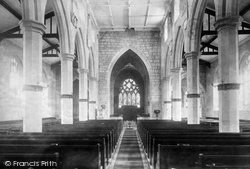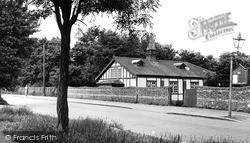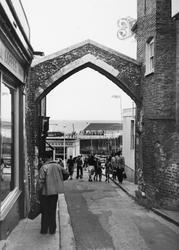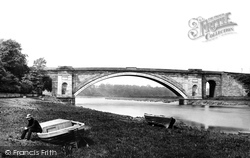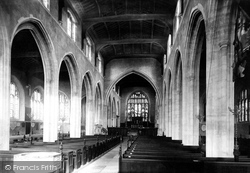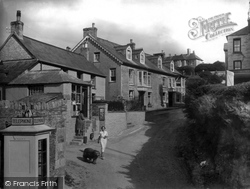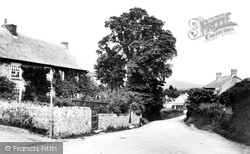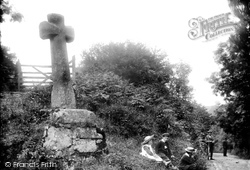Places
Sorry, no places were found that related to your search.
Photos
5 photos found. Showing results 701 to 5.
Maps
83 maps found.
Books
Sorry, no books were found that related to your search.
Memories
1,127 memories found. Showing results 351 to 360.
Growing Up In Selsdon
I was 9 when we returned from Australia in the summer of 1967, we lived at 37 Farley Road after three different houses in Littleheath Road all belonging to friends of my parents, who conveniently were away on holiday by ...Read more
A memory of Selsdon by
Growing Up In The 1960's
We lived in Headon's Cottage, Fairy Cross - it had been an old German doctor's cottage in the 1700s, a Doctor Wacerill who is buried in St. Andrew's churchyard, and his faded plaque was still above the front door - walls ...Read more
A memory of Alwington by
Growing Up In The Avenues
I left school in 1965, Ogley Hay Girls' School, my maiden name was Kathleen Cooper. My birth father was George Kelly although I was brought up by my grandparents, Nell and Gerald Cooper. I loved the avenues, everyone ...Read more
A memory of Brownhills in 1965 by
Growing Up With History
My family and I lived in part of this house for 11 years and were fortunate to learn much of its history. First built in 1086, this house has been remodeled countless times to suit the fashion of the day ...Read more
A memory of Sherborne in 1989
Guinea Gap Baths
My memory is not so much as my own, but about what my grandfather told me. He says there was no such thing as swimming baths when he was young. Their swimming baths was the docks, if the 'cocky watchman' wasn't keeping an eye out ...Read more
A memory of Wallasey by
Happy Years
The four cottages in this photograph are of Bryn Terrace, formerly named Bryn Cottages where I lived at No 1 with my sister Beryl and our parents Ceinwen and William John Thacker. My grandparents Mary Ann and William George Davies ...Read more
A memory of Burry Port in 1944 by
Help Me Out?
I'm 19, and currently writing a book about time travelling to Bridgend to 1972. I need as much research as possible. I woul love to hear your memories and any infomation you could possibly give. Just send me a message through danie_cox@live.co.uk. Thank you so much for your time.
A memory of Bridgend by
Haelfryn Thomas Lewis, 1901 1979
Haelfryn Thomas Lewis, 1901-1979 Some of Nelson’s ‘older’ residents will remember Haelfryn Thomas Lewis, the highly-respected teacher and then head-teacher of Llancaiach Primary School in Nelson between ...Read more
A memory of Nelson by
Happiness
I was born in Frensham, but moved to Farnham when aged about 5 yrs. My father was a master Taylor (Lee) & had his business at No.15 Downing Street, as did his father before him - it is now an Estate Agents. I went to St Polycarps ...Read more
A memory of Farnham in 1946 by
Happiness
My grandparents lived in one of the two cottages at the entrance to Eridge Castle, where grandad was the butler. I was so happy there. Granny would take me to see Mr and Mrs Ward who were the head gardener and his wife. Their ...Read more
A memory of Eridge Green in 1945 by
Captions
1,233 captions found. Showing results 841 to 864.
Here Withypool is viewed from its six-arched bridge over the Barle. The squat tower of St Andrew's Church can be seen above the old Methodist chapel (centre).
The shopping arcade was very much a Victorian concept, enabling the shopper to browse without getting wet on rainy days.
The roads of the New Forest tend to be much busier these days than they were when this photograph was taken.
The cannon would not have been much use in 1940. Mablethorpe is to the right and north.
There is no north aisle, but instead the plain Norman arch on the left is for a transept which contains the organ.
This view remains much the same today.
It was flanked by the high Abbey precinct wall, and the arched entrance with supporting towers formed a porch.
The waves of the sea echo along the Chine on wilder days, whilst much of the Island's southern coastline can be seen from the Observatory.
This graceful arched bridge over the River Frome has wooden rails, which still guard the road.
The ever-changing coastline has very much dictated the fortunes of Aldeburgh, but one thing which has not changed is the activity of local fishermen, who park their boats on the shingle bank which runs
The wonderfully over-the- top Baroque town hall is a triumph for the town, and much better than the pallid neo-classical one it replaced.
By the date of this photograph, much of the town's main streets were established, and they display the characteristic detail of the period: projecting shop fronts proudly display their goods (including
The hill-top town of Shaftesbury, or Shaston as it is sometimes known, owes its foundation to Alfred the Great, showing much evidence of its Saxon origins.
Tiny fishing smacks still set out from the cove each day, much as they probably did in 1588 when the Spanish Armada was first sighted off the Devon coast.
Apart from improvements in the sea defences, the view is much the same today. It was here that Sir John Millais painted that most famous of pictures, 'The Boyhood of Raleigh'.
Most obviously, a rood screen, erected in memory of Harold Woollcombe-Boyce, who died on active service during the Great War, now spans the chancel arch.
The church hall, in Rectory Road, was much more central to Pitsea than the medieval church, perched on its hilltop site.
This 16th-century arch, leading from the original village down to the harbour, was once fitted with a portcullis and gates as a protection for the settlement against pirates and sea-raiders.
When it was built in 1832, the Grosvenor Bridge was said to have the longest single stone arch span in Europe (200ft).
The high arches of the nave arcades echo the proportions of Canterbury cathedral.
This photograph was taken in the year that Giles Gilbert Scott designed the much-loved red telephone box, which was soon to become a familiar sight all over the country.
It was much restored in the 19th century. The wall of the cloisters, a feature of monastic buildings, can be seen on the right of the picture, although no monks ever dwelled within these!
The gardens on the left are much smaller since the road has been widened.
North Bovey in the latter half of the 19th century, was initially less than impressed with his flock: 'My new parishioners were very turbulent people ... the women were awful ... the whole village was much
Places (0)
Photos (5)
Memories (1127)
Books (0)
Maps (83)

